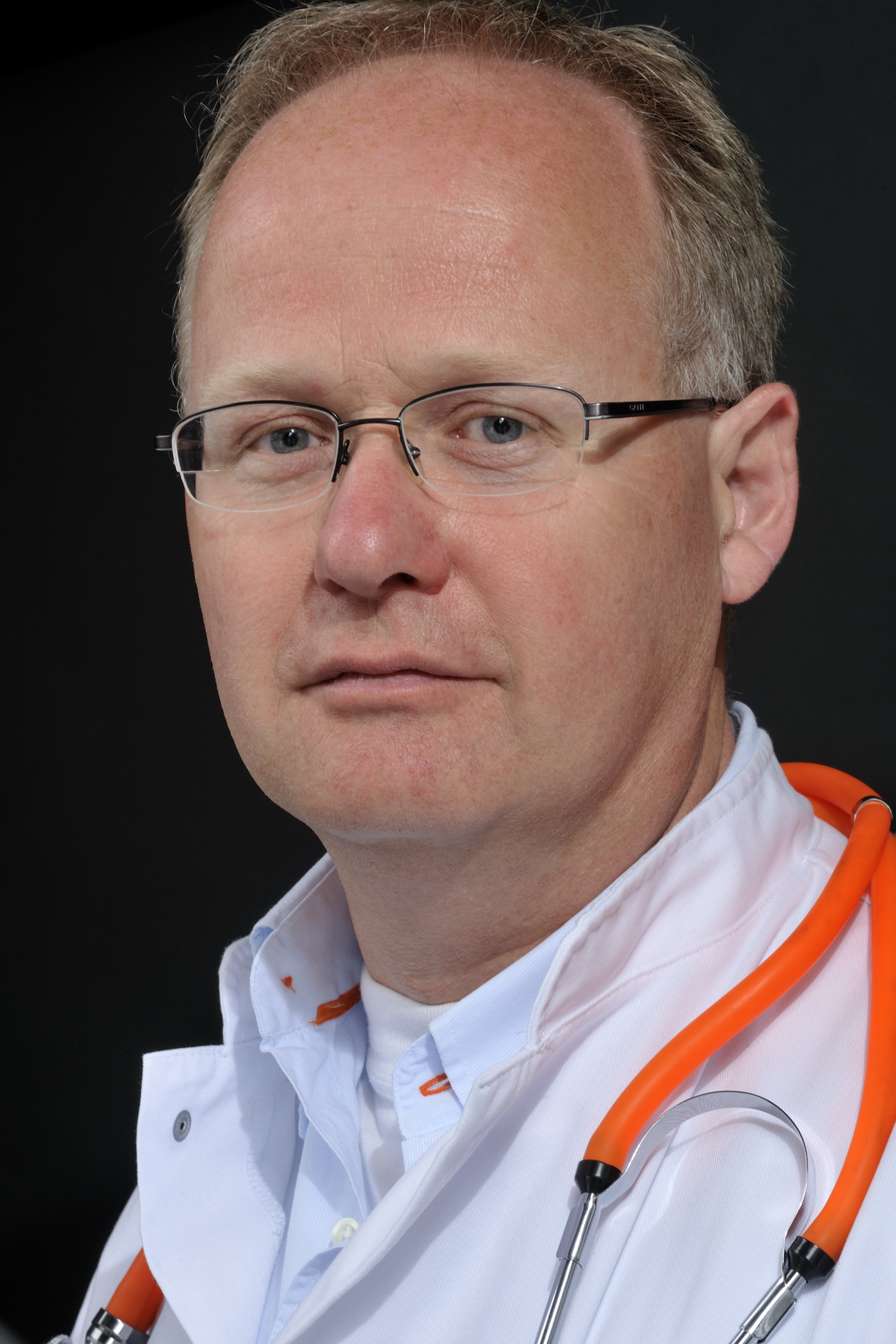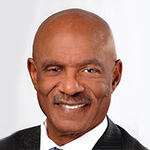Theme: Innovative Approaches towards Psychiatry and Psychology
Psychiatry Conference 2022
Psychiatry Conference 2022 is great platform to explore your knowledge and learn new things from different people. In this fast growing economy an experts who have superior command on Psychiatry and Psychology, Psychiatry Conference is the best way to share your knowledge and skills all over the world.
We warmly welcome all the Researchers, Scientists, Social Workers to take part in our nursing congress to share their valuable research work in the form Oral and Poster Presentations.
Psychiatry Conference 2022 is a two-day hybrid event that is going to be held during November 10-11, 2022 Berlin, Germany.
Criteria for being a Speaker (Oral/Poster)
- Need to be an Author/Co-author for the research article/work.
- Abstract Submission (250 Word limit)
- Registration Confirmation
Psychaitry Conference 2022 with designed for 100 attendees including below category slots.
|
Conference Dates |
Keynote Forum (Oral) |
Plenary Talks (Oral) |
Young Research Forum (Oral) |
Poster Presentation |
|
Day -01 (November 10, 2022) |
5 |
15 |
10 |
5 |
|
Day -02 (November 11, 2022) |
5 |
15 |
10 |
5 |
Psychiatry Conference 2022 provides an online option for participants who are unable to attend the conference in Germany due to travel restrictions/VISA Issues/Prior Commitments for more info contact us through our Displayed what’s app Number or Conference Email. Id.
Track 01 : Child Phychology
One of the most enjoyable aspects of becoming a parent is getting to know your child as they grow. It's part of being a parent to learn how your child sees the world, teach them new skills, and coach them while they process significant new feelings and changes, but it's not easy.
From birth until adulthood, your child will move through many developmental stages. Environmental, genetic, and cultural factors all have an impact on a child's development and how rapidly they advance through each stage. Children find it challenging to articulate what they're going through, let alone examine their feelings. That's when kid psychology can come in handy and provide you with extremely useful knowledge.
- Physical Development: Physical development in youngsters usually follows a predictable pattern. In that order, your child holds their head up, rolls over, crawls, walks, and runs. Your child's physical growth can be monitored by your paediatrician to see if there are any abnormalities that could signal developmental irregularities. Child psychologists will monitor your child's progress toward developmental milestones to ensure that he or she is growing normally. Physical development delays may show other underlying developmental concerns that can be treated early.
- Cognitive Development: In recent years, medical understanding of childhood cognitive development has shifted dramatically. Even new born babies are aware of and interested in their environment, we now know, even before they have the words to express it. The intellectual learning and reasoning processes of a child are referred to as cognitive development. It encompasses the child's ability to observe and comprehend the world around them, as well as language development, memory, decision-making, problem-solving, and how the child employs the imagination and basic reasoning. The genetics and environment of a child influence all of these aspects.
- Child Psychology At WWMG: The study of children is an important aspect of family health. It provides parents with resources to help their children progress through the stages of development, as well as giving clinicians a better understanding of a child's mental health and potential issues, such as learning or social differences, or developmental delays.
Track 02 : Clinical Psychology
Clinical psychologists are involved in professional practice, research, teaching and supervision, programme development and evaluation, consultation, public policy and other activities that upgrade psychological health in individuals, families, groups, organisations and communities Clinical psychology is an integration of the science, theory in & clinical knowledge for the purpose of understanding, preventing, and relieving psychologically – based distress or dysfunction and to promote subjective and response well – being & personal development. Clinical psychology is one of the main theoretical – applicative branches of psychology.
Track 03 : Psychotherapy
The psychological problems has been a challenge for any mental health professional Psychotherapy is a general term referring to therapeutic interaction or treatment contracted between a trained white-collar and a client, patient, family, couple, or group.
- Depression
- Bipolar disorder
- Anxiety
- Anorexia, bulimia, and other eating disorders
- Posttraumatic stress disorder (PTSD)
- Schizophrenia
- Addictions
- Personality disorders
Track 04 : Trauma Stress
Trauma and stressor-related disorders are a range of mental and behavioural issues that can arise as a result of traumatic and stressful events in childhood. Exposure to physical or mental aggression or pain, like as abuse, neglect, or family conflict, are examples of traumatic and stressful experiences.
- Physical or emotional neglect
- Household violence, substance abuse or mental illness
- Parental separation or divorce
- Incarceration of a family member
Track 05 : Mental Health
Mental health is a condition of well-being in which a person recognises his or her own potential, is able to cope with typical life challenges, is able to work productively, and is able to contribute to his or her community."Mental health, according to the World Health Organization, is more than merely the absence of mental diseases or disabilities." Peak mental health entails not only avoiding active mental illnesses but also maintaining overall well-being and happiness. They also underline the need of protecting and repairing mental health on an individual level, as well as in many groups and societies around the world. According to the National Alliance on Mental Illness, nearly one in every five adults in the United States suffers from mental illness each year. According to the National Institute of Mental Health, an estimated 11.2 million adults in the United States, or about 4.5 percent of adults.
The following are non-modifiable factors:
Gender is listed as both a controllable and nonmodifiable component in the study. Female gender elevated the chance of poor mental health by 3.96 times, according to the researchers. In this survey, people with a "low economic standing" also scored the highest for mental health issues.
Track 06 : Behavioural Psychology
Behaviourism is a method of studying human and animal behaviour in a methodical way. It is assumed that behaviour is either a reflex elicited by the combination of certain antecedent stimuli in the environment, or a result of the individual's history, particularly reinforcement and punishment contingencies, as well as the individual's current motivational state and controlling stimuli. Although behaviourists acknowledge the importance of heredity in shaping behaviour, they place a greater emphasis on environmental factors.
It incorporates philosophical, methodological, and theoretical elements. behaviourism arose in the early 1900s as a reaction to depth psychology and other traditional forms of psychology, which struggled to make predictions that could be tested experimentally. It was based on earlier research from the late 1800s, such as Edward Thorndike's pioneering of the law of effect, a procedure that involved the use of consequences to strengthen or weaken behaviour.
Techniques from Behavioral Psychology
Several concepts in behaviourism are utilized in therapy.
- Systematic desensitisation is utilised with clients who have a specific phobia, which is defined as a strong fear or anxiety about a certain object or scenario, such as an animal or flying. As people are gradually exposed to the object or event, relaxation or coping skills are used.
- Exposure and reaction prevention is a technique that involves being exposed to frightening events and then refraining from using problematic coping mechanisms. Obsessive-compulsive disorder (OCD) and other anxiety disorders are treated with this treatment strategy.
- Children and adults are given symbols or tokens that can be exchanged for something else in a token economy, which encourages target behaviour. It can be employed in educational settings as well as for those with a variety of mental health conditions.
Clients learn behaviour solely by imitation when they are modelled. It's a tool used in developmental psychology that can also be employed in clinical settings.
Track 07 : Alzheimer's disease
Alzheimer’s disease is the most ordinary cause of dementia. These symptoms occur when the brain is injured by certain diseases, including Alzheimer’s disease. Alzheimer’s disease is an irreparable, progressive brain disorder that slowly destroys memory and thinking skills and, eventually, the ability to carry out the simplest tasks.
Track 08 : Cognitive psychology
Cognitive psychology, branch of psychology devoted to the study of human cognition, particularly as it impacts learning and conduct. The field emerged out of breakthroughs in Gestalt, developmental, and comparative psychology and in computer science, particularly information-processing studies.
Track 09 : Positive Psychology/Science of Happiness
Positive Psychology is a relatively new discipline of psychology that focuses on happiness, specifically creating methods and characterising behaviours that help people stay happy. 'We hope that during the development of positive human activity, the psychology of positive human activity will meet scientific understanding, resulting in an effective intervention to improve individuals, families, and communities’. Positive psychology was coined by Martin Seligman and Mihaly Csikszentmihalyi.
The focus of positive psychology study is not on psychological issues. Its goal is to discover patterns that can assist everyone in achieving happiness and well-being. It asserts that the human mentality should be defined by its ability to be happy, not by its illnesses!. The happy life, according to Martin Seligman, the creator of positive psychology, is "a life in which we experience true satisfaction and abundant joy every day thanks to our own strength."
Positive psychology is the study of happiness and flow, as well as human values, strengths, virtues, and skills, and how they are influenced by social systems and institutions.
Happiness encompasses a variety of emotional and mental states. Several research have established several rating systems, one of the most well-known of which is Ed Diener's satisfaction scale. A psychologist named Daniel Kahneman takes a unique approach to defining happiness. He investigates the distinction between the experiencing and remembering selves.
Track 10: Occupational Health
Occupational health psychology is concerned with the psychological aspects of work. Occupational health psychology (OHP) has arisen as a specialty with its own organisations in Europe and North America, according to Pickren and Degni and Sanderson. OHP owes some of its emergence to health psychology as well as other disciplines (e.g., industrial/organizational psychology, occupational medicine), according to the authors. Sanderson cited Adkins' research as an instance of how OHP connects with health psychology. In a complicated organisation, Adkins reported the use of behavioural concepts to enhance working conditions, reduce job stress, and increase worker health.
The emergence of health psychology corresponded with a number of important trends, including:
- Evidence of a relationship between conduct and health.
- The inclusion of behavioural science in medical school curricula, with psychologists frequently teaching courses.
- Communication skills training for health workers with the goal of improving patient satisfaction and adherence to medical treatment.
- A growing variety of therapies based on psychological theory are being developed (e.g., behaviour modification).
- Psychophysiology and psychoneuroimmunology emerged as a result of a better knowledge of the connection between psychological and physiological components (PNI).
- Social psychologists have turned their attention to the health area in order to test theoretical models that relate beliefs, attitudes, and behaviour.
- The development of AIDS/HIV and the associated increase in funding for behavioural research.
The establishment of academic/professional groups to promote health psychology research and practise was followed by the publishing of a series of textbooks that laid the groundwork for future research and practise.
Track 11 : Women Mental Health and Disorders
The fight against mental disease is one of the most difficult tasks facing the health-care profession. To begin with, diagnosing major illnesses including schizophrenia, bipolar disorder, depression, and anxiety can be challenging. The societal stigma connected to mental health illnesses is likely the most formidable barrier to treatment. Women are disproportionately affected by patients' unwillingness to seek treatment for mental health issues, in part because women are more sensitive to many prevalent mental health diseases than males.
Many women are simply unaware that their symptoms represent an illness that may be treated, in addition to feeling too ashamed to seek care for a mental disorder. The provision of information about the prevalence of mental illness, the negative effects it has on women and their families, and the many resources available to help them receive the treatment they need to return to health is a big step toward improving the diagnosis and treatment of mental health conditions in women. The material in this guide is meant to serve as a starting point for both health care providers and women and their families who are looking for options to help them get on the road to wellness.
Track 12 : Neuropsychology
Neuropsychology is a discipline of psychology and neurology that focuses on the relationship between the structure and function of the brain and specific psychological processes. It takes a scientific approach to mental processing and shares a perspective of the mind with cognitive psychology and cognitive science..
- Memory difficulties
- Mood disturbances
- Learning difficulties
- Nervous system dysfunction
Track 13 : Autism spectrum disorder
The human behaviour, communication, play actions, and interests of your child are all affected by autism spectrum disorder. This explains the general characteristics of ASD, how it's diagnosed, and typical misunderstandings regarding its causes. Because there are no medical or blood tests for ASD, identifying it might be difficult.
- Irritability
- Aggression
- Repetitive behavior
- Hyperactivity
- Attention problems
- Anxiety and depression
Track 14 : Child & Adolescence Behavioural Therapy
Behavioral therapies for children and adolescents vary significantly, but they all focus on how a young person's environment may inadvertently or unintentionally "reward" some troublesome attitudes or undesirable actions. These incentives or reinforcements frequently lead to an increase in the frequency of negative thoughts and behaviours. Adolescents and children can benefit from behaviour treatments for a variety of psychological issues.
Behavioral therapists urge children and adolescents to try new behaviours, reward positive actions, and enable unpleasant habits to "extinguish" despite the fact that behavioural therapies differ greatly from disease to disorder (that is, ignore unwanted behaviours).
Types of Behavioral Therapies
Track 15 : Attention-Deficit Hyperactivity Disorder (ADHD)
ADHD is a condition in which a person's ability to pay attention and regulate impulsive impulses is hampered. He or she may also be agitated and energetic all of the time. ADHD is a neurocognitive managerial function impairment that results in a failure to maintain an adequate problem-solving set in order to achieve a future objective, with fronto-striatal dopaminergic circuits.
- The advantages of the Speaker and abstract pages are created in Google on your profile under your name would get worldwide visibility.
- Our comprehensive online advertising attracts 30000+ users and 50000+ views to our Library of Abstracts, which takes researchers and speakers to our conference.
- Meet with hundreds of like-minded experts who are pioneers in Psychiatry and Psychology conference 2022 and share ideas.
- All participants in the Conference would have a different reason to participate with eminent speakers and renowned keynote speakers in one-to-one meetings.
- A rare opportunity to listen what the world's experts are learning about from the world's most influential researchers in the area of Psychiatry and psychology at our Keynote sessions.
- Psychiatry and psychology 2022 intensive Conference schedule, you will acquire experience and expertise in strategic gift preparation that is worth its weight golf, forming an impressive array of recognized professionals.
- Best Poster Award nominations.
- Award for Outstanding Young Researcher.
- Group Registration Advantages.
Benefits of Participation for Speaker
- Worldwide appreciation of the profile of Research.
- Obtain credits for professional growth.
- Explore the latest of cutting edge analysis.
- Make long-term bonds at social and networking activities.
- An ability to advertise one page in the distribution of abstract books and flyers that ultimately gets 1 million views and adds great value to your research profile.
- Learn a transition beyond your area of interest to learn more about new subjects and studies away from your core subject of Psychiatry and psychology Conference 2022.
- We have distinctive networking, learning and enjoyable integration into a single package.
Benefits of Participation for Delegate
- Professional Development-Improve understanding and knowledge.
- Attendance at conferences supports rejuvenates and energizes delegates.
- Your involvement in our conference will help with a new methodology and ideology that can be used to broaden the outcomes of businesses or industries.
- Opportunities for Psychiatry and psychology Conference 2022 researchers and experts in the same field to meet and exchange new ideas through a Physical Conference.
Benefit of Participation for Sponsor
- Exposure to the international environment would increase the possibility of new companies.
- Opportunity to demonstrate your company's latest technologies, new products, or service your business to a wide range of international participants.
- Increase business by our conference participants through lead generation.
- It takes a lot of time, effort and drive to create a successful company, so it's always nice to have a network of colleagues and associates to draw energy from individuals who share a common drive and objective.
- Conferences in Psychiatry and Psychology provide opportunities for more attention and contemplation that could help you move your company to the next stage.
- Benchmarking main organization plans
Psychiatry is more essential to the common public than ever before, and with the rise of reported problems in mental health and behaviour health issues, it might seem a bit puzzling as to why personalities still tend to ignore the consequences of leaving these indications crude. About 14% of the global burden of disease has been attributed to the neuropsychiatric sicknesses, as by 2020, it is estimated to be that the burden of mental sicknesses will have to be increased to 15 % of the Disability Adjusted Life Years, which is termed to be (DALYs).
Psychology is knowingly another idea over the globe, yet none the less, and constrained accessibility over the globe. 893 acknowledged professionals were registered before the finish of 2002 which relates to around one therapist for every 9.000 occupants. this chief has exploded in disrepute coming about because of the positive market development, solid incorporated program plan.
Psychological sickness can be unprocessed by decreased business, family breakdown, vagrancy and suicide. The weight extents out past the person to loved ones. Neuropsychiatric issue are the subsequent driving reason an of inability balanced life years (DALYs) in Europe and record for 19%, with just 4% after cardiovascular issue. About 27% of the grown-up populace had at any rate one of experienced arrangement of mental issue which incorporates issues emerging from substance use, psychosis, despondency, uneasiness and dietary issues.
WHO stated that roundly 350 million populations are suffering from misery and mental disorders and nearly 24 million populations globally is pretentious by schizophrenia disorder. According to a survey, approximately 77% of patient population receive psychotherapy are benefited or remained generalized concern disorder free after treatment. Hence, high satisfaction of psychiatry therapies to cure variant of disorders will drive the market growth. Mostly due to the regularly incapacitate nature of the depression. More than 84 millions of people are pompous by mental health issues. Around 10 million peoples a year expertise mental disorders in Europe. The economic result of an mental health problems at more than €600 billion across the EU.
Conference Highlights
- Women Mental Health and Disorders
- Clinical Psychology
- Psychotherapy
- Trauma Stress
- Positive Psychology/Science of Happiness
- Behavioural Psychology
- Cognitive psychology
- Occupational Health
- Cognitive psychology
- Neuroscience
- Child Phycology
- Mental Health
- Neuropsychology
- Autism spectrum disorder
- Child & Adolescence Behavioural Therapy
- Attention-Deficit Hyperactivity Disorder (ADHD)
To share your views and research, please click here to register for the Conference.
To Collaborate Scientific Professionals around the World
| Conference Date | November 10-11, 2022 | ||
| Sponsors & Exhibitors |
|
||
| Speaker Opportunity Closed | |||
| Poster Opportunity Closed | Click Here to View | ||
Useful Links
Special Issues
All accepted abstracts will be published in respective Our International Journals.
- Journal of Psychology and Psychotherapy
- Journal of Psychiatry
- International Journal of Emergency Mental Health and Human Resilience
Abstracts will be provided with Digital Object Identifier by


































